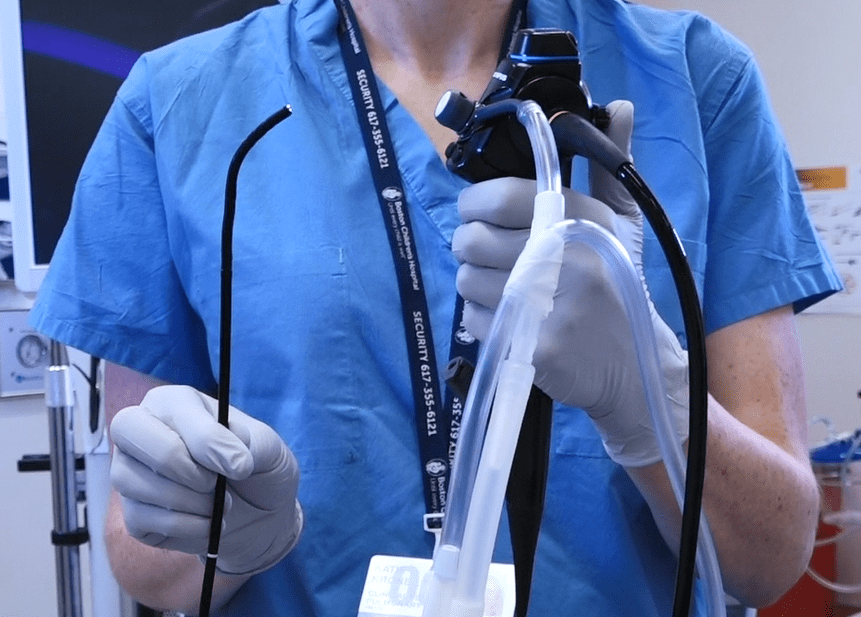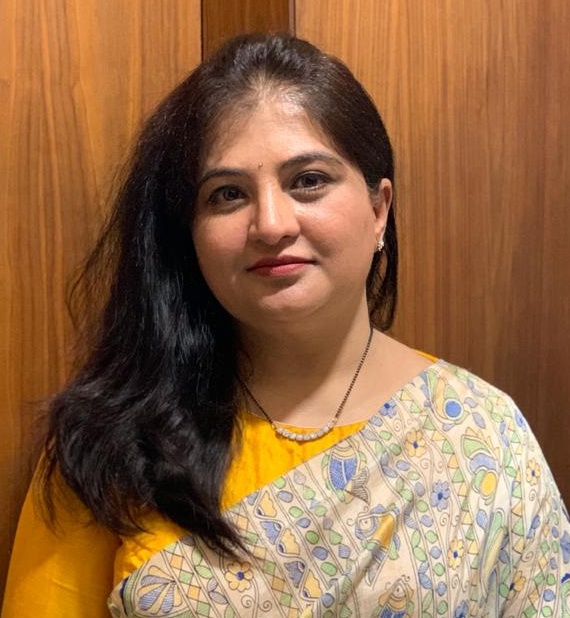Pediatric Bronchoscopy

Pediatric Bronchoscopist in Nagpur - Dr. Shilpa Hazare
Pediatric Bronchoscopy:
Bronchoscopy is a vital method that pulmonologists use to visually inspect the airways. It can be utilized to diagnose infectious, structural, and functional problems of the airways and peripheral lung tissue, as well as to treat particular disorders. In around 80% of instances, information collected during bronchoscopy can help with a clear diagnosis. All patients’ key concerns are patient safety and comfort. Dr. Shilpa Hazare is one of the best and most experienced Pediatric Bronchoscopist in Nagpur. She has been performing Pediatric Bronchoscopy in children including newborn babies for the past 20 years.
Facts About Flexible Bronchoscopy
- A flexible bronchoscopy entails inserting a bronchoscope, a special device with a small camera, into the trachea (windpipe) and lungs’ airways.
- Bronchoscopy allows the doctor to check if the airways are clogged or restricted if abnormal secretions (mucous) or a foreign body are present, and if the airways are in the proper position in the lungs.
- A little amount of saltwater may also be sprayed into the lungs and suctioned out so that it may be analyzed.
- Sedation medicine, a form of anesthetic, will be given to your kid to help him or her relax and make the test more comfortable.
- When anesthesia is required, there are certain eating and drinking guidelines that must be observed in the hours leading up to the procedure.
- Bronchoscopy takes between 4 and 6 hours to complete, including preparation and recuperation time.
Facts About Sedation
- Sedation refers to the use of drugs to make your youngster sleepy, peaceful, and comfortable throughout the exam.
- Your child will not feel or recall any discomfort throughout the test, even if he or she is not entirely asleep.
- Parts of the exam may require a deeper level of anesthetic in many circumstances. This sort of anesthetic is administered through the use of a special “space mask” that will put your child to sleep and keep him or her comfortable during the procedure.
- Your child will be given a sedative and/or anesthetic medicines by a pediatric anesthesia expert.
- What is Flexible Bronchoscopy Testing?
- Home Preparation
- Complications
- The bronchoscopy will be recorded and presented on a video screen for the doctor to review later.
- The bronchoscope can also take still images of the airways, which you and your child can examine and discuss with the doctor later.
- A tiny tube on the bronchoscope allows the doctor to spray numbing medicine on the airway or voice chords to keep your kid comfortable throughout the exam.
- The doctor will place a tube into your child’s mouth and stop it immediately above the larynx or voice box if the bronchoscopy will be done through the mouth. This tube, known as a laryngeal mask, keeps the mouth open and lets the doctor see the airways and administer anesthetic gases through it.
- In some situations, a kid will be fitted with an endotracheal tube. The endotracheal tube is inserted into the mouth and exits via the trachea (windpipe.) This tube, like the laryngeal mask, allows the doctor to use a bronchoscope to examine the airways and provide anesthetic gases.
- Based on your child’s medical needs, your doctor will determine whether to use a laryngeal mask or an endotracheal tube.
- A bronchoalveolar lavage (BRONK-oh-al-vee-OH-lar la-VOZH) is a procedure in which a tiny quantity of saline or sterile salt water is sprayed into the airways through the bronchoscope’s channel and then suctioned back out into a sterile container. Cells from your child’s lungs’ airways are then added to the saline, which may be examined under a microscope to determine infections or other lung disorders.
- A biopsy (BYE-op-see) is a procedure in which microscopic pieces of tissue from inside the lungs are removed and examined under a microscope in a very limited percentage of instances. If this additional test is required for your child, your doctor will discuss it with you.
When sedation is required, there are certain dietary and beverage guidelines that must be observed in the hours leading up to the test.
- Based on your child’s age, the nurse will offer you particular feeding and drinking guidelines. The typical eating and drinking guidelines are shown below. You should follow the particular directions given to you over the phone by the nurse, regardless of your child’s age.
For Children older than 12 months –
- Give no solid meals or non-clear drinks after midnight the night before the exam. Milk, formula, pulpy drinks, coffee, and chewing gum or candies are all examples.
For infants under 12 months –
- Formula-fed newborns can be fed formula up to 6 hours before their planned arrival time.
- Breastfed newborns can suckle up to 4 hours before their planned arrival time.
For all children –
- Only clear drinks should be given up to 2 hours before the expected arrival time. Water and see-through juices like apple or white grape juice are examples of clear liquids.
- Give nothing to eat or drink for the next two hours before the anticipated arrival time.
- Every medical test has some level of risk. Despite the fact that the risks of a flexible bronchoscopy are quite minimal, you should be aware of the potential problems. They are as follows:
- Bleeding from the nose or airways as a result of the bronchoscope scratching them. This bleeding is generally fairly little and nearly always goes away on its own.
- The bronchoscope can transfer germs over the vocal cords to the lungs when it goes through the nose. This is a very low risk that can be addressed with antibiotics.
- A perforation (hole) in the airway causes the lung to collapse. This complication has a one-in-a-thousand chance of occurring. The air surrounding the lung would have to be evacuated using a chest tube in such a case. This means your kid will have to stay in the hospital for a longer period of time until the hole in the lung heals, which normally takes 1 to 3 days.
Why Choose Dr. Shilpa Hazare?
Dr. Shilpa Hazare is one of the best Bronchoscopist in Nagpur who provides Pediatric bronchoscopies in children including newborn babies. She has overall 20 years of experience and has a special interest in bronchoscopy and pulmonology.

Dr. Shilpa Hazare
MD (Paed), DCH, DNB Consultant Neonatologist, Pediatric Intensivist, Pulmonologist and Bronchoscopist.
- 20 Years Of Experience
- Special Interest In Pulmonology and bronchoscopy.
- Mon-Sat | 10Am to 5PM
